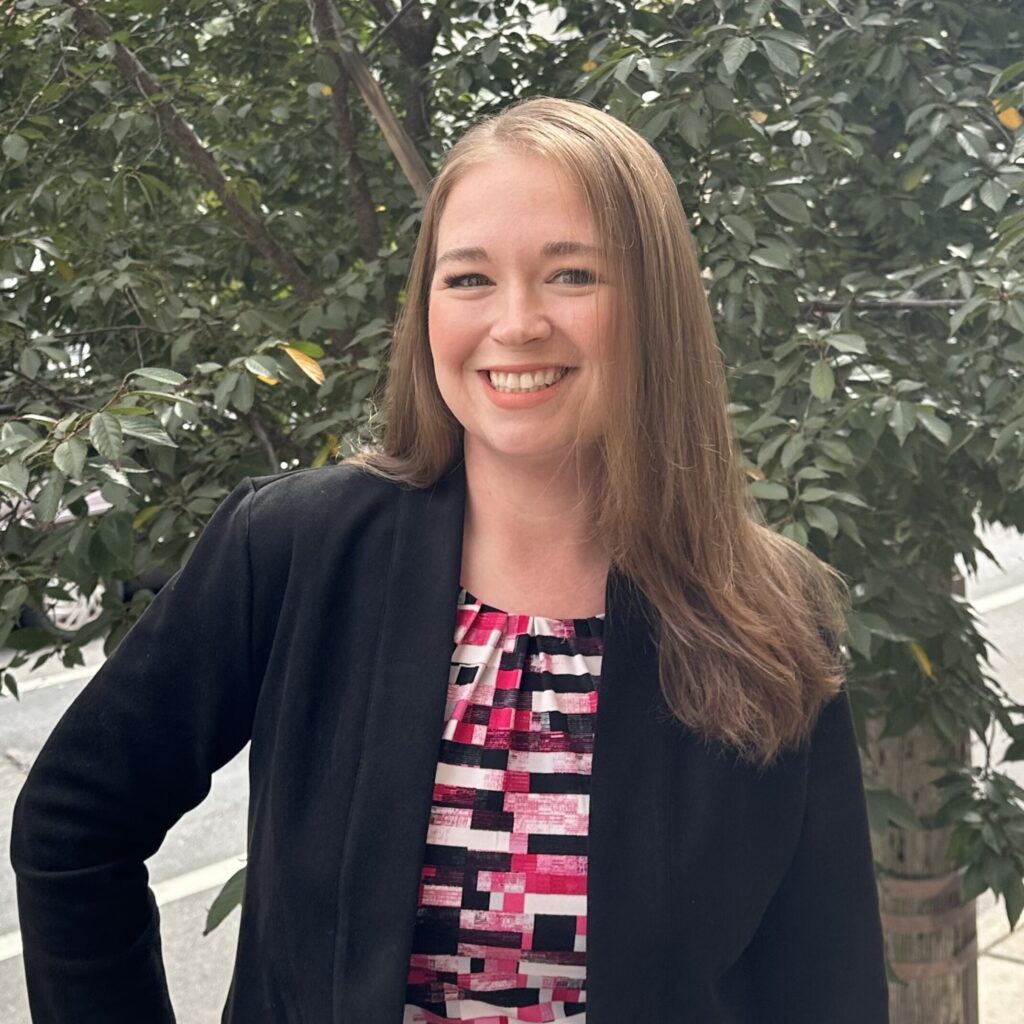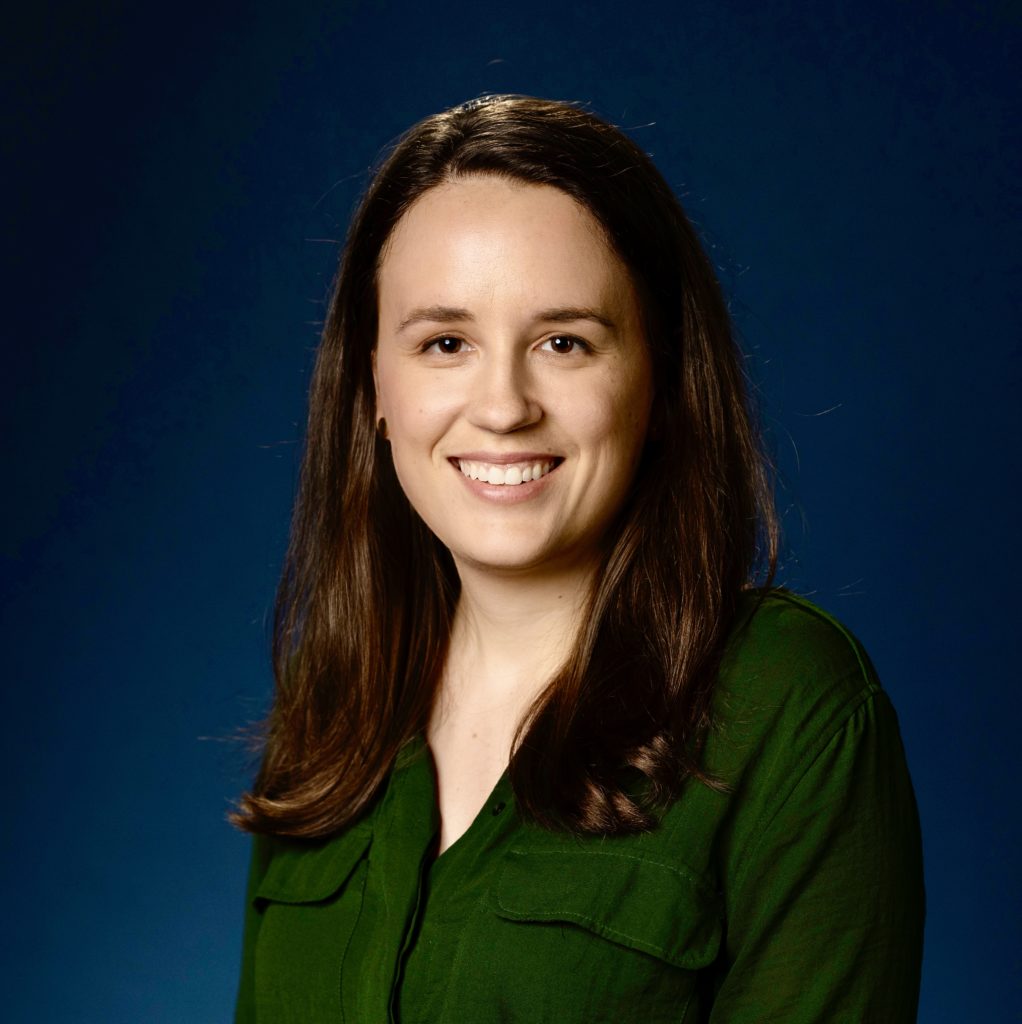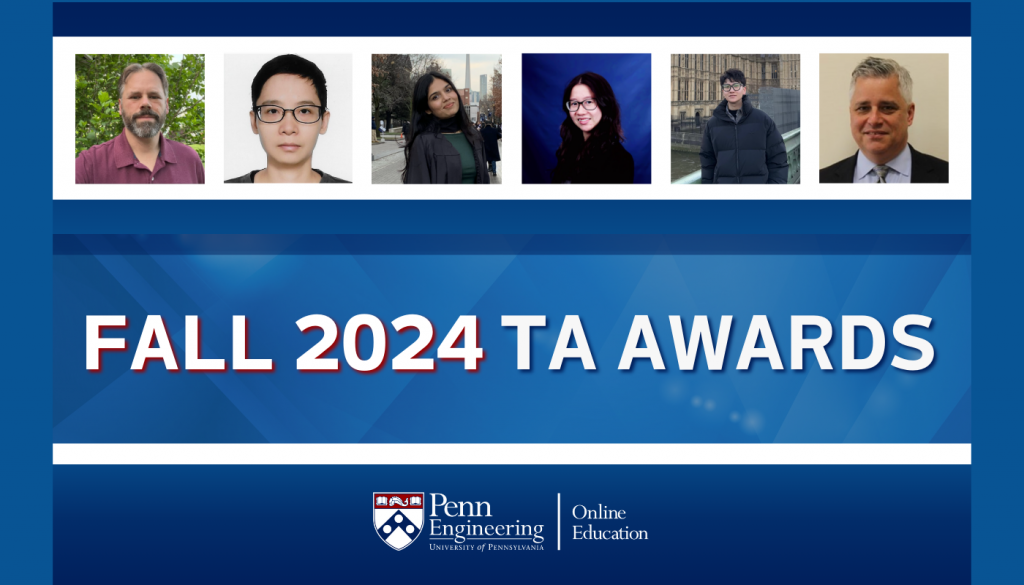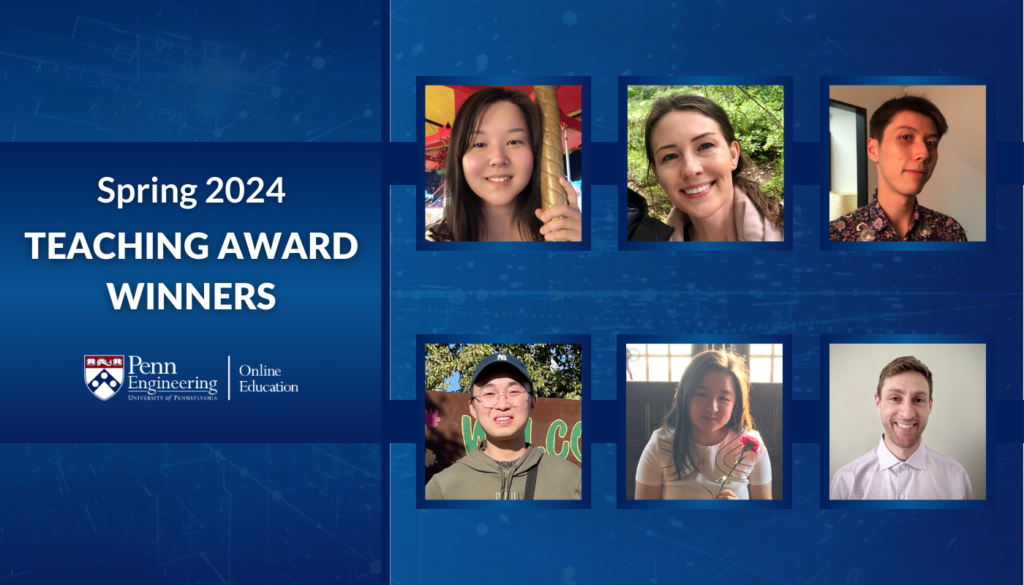Discover Your Academic and Professional Community at Penn Engineering Online
Please note that recordings of past webinars may contain outdated information. Please see our admissions pages to find the most up-to-date information for application requirements, current tuition, fees, and deadlines.
Pursuing an online graduate degree in computer science, data science, or artificial intelligence can feel like a big step. Maybe you don’t have a traditional tech background. Maybe you’re juggling work, family, and other responsibilities. Or maybe you’ve been out of school for an extended period, and you’re wondering how you’ll feel connected and supported in a virtual learning environment.
In a recent webinar hosted by Penn Engineering Online, Morgan Baggiano, Online Admissions Manager, and Adrienne Yoder, Academic Advising Manager, provided insights into the robust sense of community cultivated within Penn Engineering’s online graduate degree programs, as well as the extensive support services available to students.


Three Online Programs
Penn Engineering Online offers three rigorous online master’s degree programs, each embedded within a dynamic and collaborative academic community:
- Online Master of Computer and Information Technology (MCIT Online)
- Online Master of Science in Engineering in Data Science (MSE-DS Online)
- Online Master of Science in Engineering in Artificial Intelligence (MSE-AI Online)
These programs are intentionally designed to be academically challenging while also providing flexibility and support structures that guide students to success.
Why Students Choose Penn Engineering Online
Key features that attract graduate students to Penn Engineering Online include:
- Access to world-renowned faculty through regular office hours and on-demand lectures. These are the same Ivy League faculty members who instruct the on-campus degree programs.
- Fully asynchronous course delivery, allowing students to complete assignments and view lectures whenever and wherever works best for them.
- Flexible scheduling, including full-time or part-time enrollment and the option to take summers off.
- A broad and engaged network of students, alumni, faculty, and staff committed to student success.


Global Connection and Support
Adrienne Yoder highlighted several ways that students remain engaged and supported from admission through to post-graduation. The numerous platforms and opportunities for connection include:
Private LinkedIn Group:
Upon admission, students gain access to a private group to facilitate professional networking.
Slack Workspace:
This online messaging platform serves as a virtual student union, enabling real-time interaction for classmates, with the option to join specific channels based on geography, interests, courses, and more.
Ed Discussion:
A course discussion platform moderated by instructional staff to facilitate academic engagement and allow students to seek class-related support.
Penn Libraries:
Comprehensive access to digital academic resources, including journals, e-books, and news publications.
Cultural Resource Centers:
Students can participate in communities aligned with shared interests and identities.
MOSA:
The MCIT Online Student Association (MOSA) is committed to offering opportunities for educational enrichment, student advocacy, professional development, and community-building. MOSA hosts academic and social events year-round, such as virtual game nights and hackathons. Students from MSE-AI and MSE-DS are also welcome to participate.
On-Campus Events:
These include annual in-person gatherings and opportunities to connect face-to-face with peers and faculty, including Fall Fest and Commencement ceremonies.
Geographically-Based Meetups:
Students around the globe frequently organize informal local meetups with students in their region, from New York to San Francisco to Singapore.
Career Services “Road Trips:”
In-person visits to select cities to foster peer and employer connections.
Tailored Career Support:
A dedicated career services team offers assistance with networking strategies, interview preparation, and virtual career fairs.
Alumni Engagement:
Graduates continue to receive support from Penn alumni clubs around the world through networking opportunities and events.
Course Delivery Tailored for Online Success
Penn Engineering Online’s Course Delivery (LDT) Team plays a vital role in supporting the online academic experience. The team maintains the Canvas learning management system and provides technical assistance. Office hours are held throughout the day to ensure timely support for any technical challenges students may encounter.
The LDT Team also collaborates closely with faculty in their designated course production student to design and create digital course content that is uniquely engaging and impactful for online learners.
Opportunities for Mentorship and Engagement
Students at Penn Engineering Online have a range of opportunities to take active roles in mentoring and academic support. This not only provides them a chance to build community by engaging more closely with their classmate, but also helps students dive deeper into course content and really master the academic material. Opportunities include:
- Teaching Assistant (TA) Program: TAs guide fellow students to achieve academic success by leading recitations, grading assignments, participating in course discussions via Ed Discussion, and holding office hours.
- Teaching and Learning Practicum (TLP): High-performing students may apply for the TLP, which combines formal training with practical experience in educational mentorship. Completion of this program results in a teaching practicum course credit. Additionally, tuition for one concurrently taken course is covered during the practicum semester.
- Academic Coach Program: Academic Coaches serve as both tutors and mentors. This resource is geared toward students starting a new academic program, and is particularly helpful for those who are returning to education after a break or students who are new to online learning. Coaches provide one-on-one academic guidance while helping students adjust to and succeed in online learning.


Earning a master’s degree represents a significant academic and professional commitment. The dedication and sacrifices required can be extremely rewarding due to the potential for career advancement, and earning potential, not to mention the personal growth, intellectual achievement, and sense of accomplishment. With an extensive portfolio of resources available to you throughout your journey, the team at Penn Engineering Online will get you across the finish line and root for you every step of the way.
Frequently Asked Questions from the Webinar
What is the weekly time commitment required of students?
The weekly time commitment varies depending on a student’s background and prior experience. As a general guideline, students should anticipate dedicating approximately 15 -18 hours per course each week. It is recommended that students map out their weekly schedules to accommodate time for lectures, assignments, and participation in discussion forums.
Working professionals typically enroll in 1–2 courses per semester, while students with more availability who want to study full-time may opt to take up to 3 courses per semester.
What distinguishes Penn Engineering Online from other programs, particularly for international and non-traditional students?
There are so many things! One way Penn Engineering Online distinguishes itself from other online programs is through its deep commitment to fostering a strong sense of community, which research and experience indicate is essential for student success. A broad range of student-led initiatives, digital collaboration platforms (such as Slack), virtual programs, and engaging in-person events create multiple pathways for connection.
The online student population is comprised of students from all walks of life, spanning a five-decade age range, and includes a combination of career changers, full-time parents re-entering the workforce, and individuals from varied professional backgrounds such as teaching, finance, music, medicine, and acting. Despite these differences, our students benefit from learning amongst peers with such a wide variety of perspectives and can find both common ground and mutual support throughout their academic journey.
Because we focus so much on community, our students love to give back. Academic Coaches, TAs, and TLPs often choose to continue in these roles semester after semester out of a desire to support and mentor their peers.
Can you talk more about the in-person events?
Penn Engineering Online organizes two in-person events annually on the University of Pennsylvania campus:
-
- Fall Fest – Held in October or November, this weekend-long event includes informational sessions with faculty and staff, networking opportunities with industry professionals, campus tours, and social gatherings. It’s a great opportunity to meet other online students.
-
- Commencement – Conducted in May, this event features the University’s formal commencement ceremony followed by a reception for online students and their families with Penn Engineering faculty.
Want to Learn More?
- Visit Penn Engineering Online’s YouTube channel
- Schedule a 15-minute meeting during Office Hours
- Join an upcoming Coffee Chat or Event
- Check out the FAQ database
- Email online-admissions@seas.upenn.edu
If you are ready to apply, get started at https://online.seas.upenn.edu/
